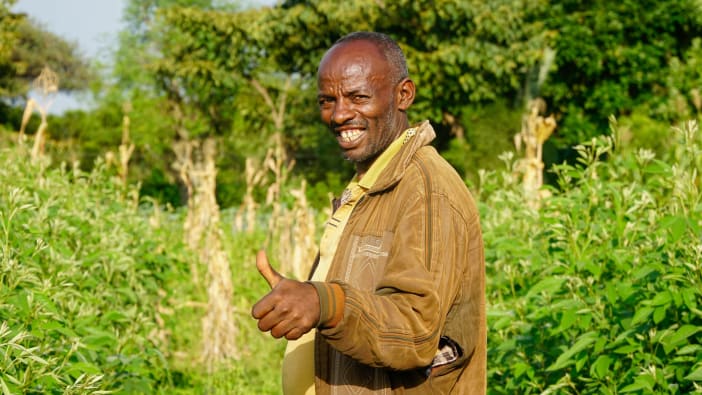Will genetically modified (GM) crops bring large harvests and food for all? Or will they bring monster tomatoes and biopiracy (the unacceptable ownership of genetic material and traditional knowledge)? It is still too early to know what impact genetically modified crops will have.
There is much public unease, but many scientists are convinced of the long-term benefits. Supporters argue that the world desperately needs GM crops to ensure food security. These crops may produce higher yields or more nutritious food with less use of chemicals. But many people fear there may be unknown side effects and damage to the environment. Others believe that greed on the part of large seed companies is the driving force – not the need for better crops.
Genes determine the way in which a typical crop plant grows and on average there are about 80,000 genes within each plant. Scientists are now able to insert completely new genes from other species (occasionally even from animals), which alter the characteristics of the crop. So far most work has been done on crops which are grown commercially on a large scale and allow the seed companies to make large profits from their research.
These crops include soya beans, maize, cotton, oilseed rape and tomatoes.
As new genetic material and genes are identified, companies are rushing to patent them, so that they can benefit from their research into processes based on the unique properties of these genes. Traditionally, patents apply to inventions of new products or processes – not to the discovery of things that already exist in nature.
Concerns raised
Dangers to the environment
There is concern that GM crops may interbreed with other similar species – such as the wild relatives of crops. This might introduce genes that would help weeds to resist pests or grow stronger. Another concern is that if the new GM material is from a virus, this could evolve into potentially harmful new viruses.
Loss of biodiversity
At present many small farmers in third world countries support a great diversity of crop and plant varieties. These plants all show different characteristics and can survive under different conditions. Replacing this richness of variety with vast monocultures of a single crop may leave the crop open to attack from pests and diseases or unable to survive changes in climate.
Health risks
There is a risk that the introduced genetic material may cause allergies in people eating the crop. It may also be possible for some of the genes used to cause resistance to antibiotics.
The profit motive
There is real concern that scientific advances, which could bring enormous benefits to the poor, are being left in the hands of a few large companies whose motive is excessive profit.
The terminator gene
One company now owns a patent on a gene that prevents saved seed from germinating. So far this has only been found to work with cotton and tobacco, but may be introduced into other crops in the future. Hybrid seed already reproduces poorly, so farmers using this know they will need to buy new seed each year. However, at present 80% of crops in third world countries are sown using seed saved by farmers. Though farmers will not be forced to buy GM crops with this terminator gene, it is possible there will be increasing pressure to do so in the future.
Information adapted from Panos Briefing No 30A and Outreach Biodiversity Series (see page 14).









